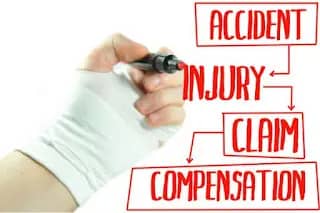In the context of Indian law, personal injury cases are governed by various statutes and legal principles. Here’s a simplified overview:
1. Understanding Personal Injury in Indian Law:
The compensation is payable in cases of personal injury caused to the workman by accident arising out of and in the course of his employment. The expression “personal injury” has not been defined. Personal injury under the Act means physiological injury.
Definition: Personal injury in Indian law refers to harm caused to an individual’s body, mind, or emotions. It can result from accidents, medical negligence, or intentional acts.
2. Compensation Framework:
Motor Vehicles Act, 1988: If you’re injured in a road accident, this law applies. It provides a framework for compensation for victims of motor vehicle accidents.
Consumer Protection Act, 2019: This law protects consumers and provides for compensation in case of defective goods, services, or medical negligence.
Fatal Accidents Act, 1855: In cases of wrongful death due to someone else’s negligence, this law allows certain family members to claim compensation.
3. Key Concepts:
Negligence: Similar to other legal systems, negligence is a crucial concept. If someone fails to act with reasonable care, and you get hurt, you may have a case.
Compensation: The legal system in India allows for compensation to cover medical expenses, loss of earnings, pain, and suffering.
4. Government Schemes:
Motor Accident Claims Tribunal (MACT): For accidents involving motor vehicles, MACT is a specialized forum for seeking compensation. The compensation amount is determined based on the nature and extent of injuries.
Employees’ State Insurance (ESI): For work-related injuries, the ESI Act provides compensation to employees covered under the scheme.
5. Consumer Protection Laws:
The Consumer Protection Act allows consumers to seek compensation for injuries caused by defective products or services.
6. Criminal Aspects:
Indian Penal Code (IPC): In cases of intentional harm or negligence causing harm, there might be criminal proceedings under IPC.
7. Legal Assistance:
Consult with a personal injury lawyer: If you’re injured, it’s crucial to consult with a lawyer who specializes in personal injury cases. They can guide you on the specific laws applicable to your situation.
8. Time Limits:
There are specific time limits (known as statutes of limitations) within which you must file a personal injury claim. It’s important to be aware of and adhere to these timelines.
9. Cultural Considerations:
In some cases, cultural factors and social norms may play a role in how personal injury cases are perceived and addressed.
Remember, laws can be complex, and the details can vary based on the specific circumstances and the state in India. Seeking legal advice from a qualified professional is essential to navigate the intricacies of personal injury law effectively.
Disclaimer :-in this Data In Any Wrong Kindly Comment On It I Will Remove It
